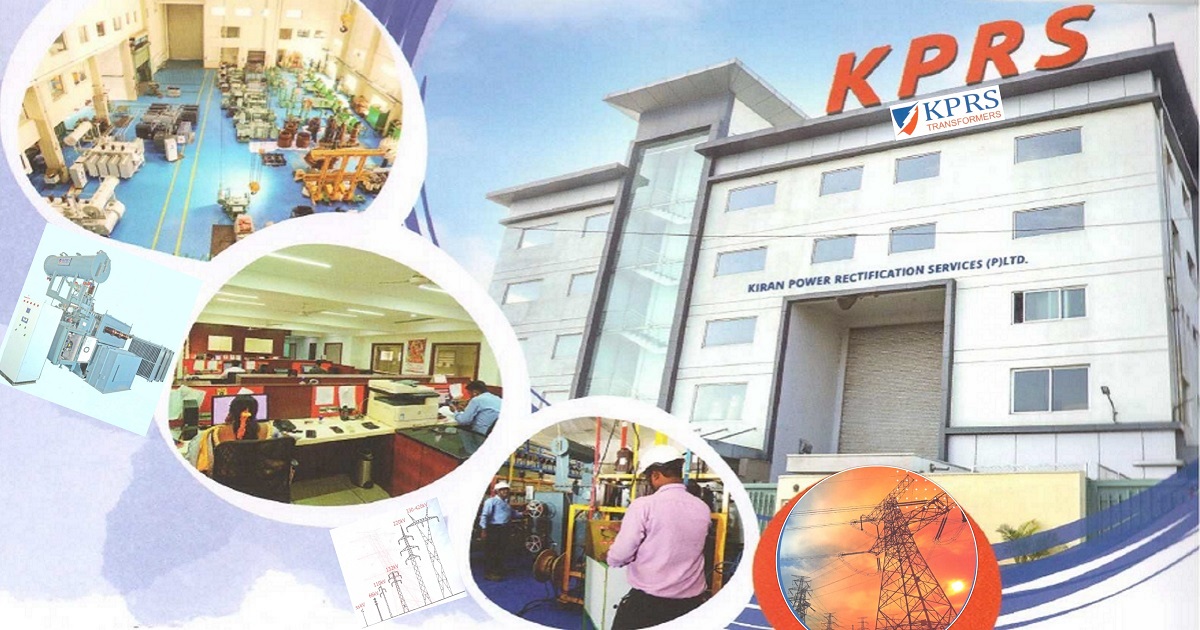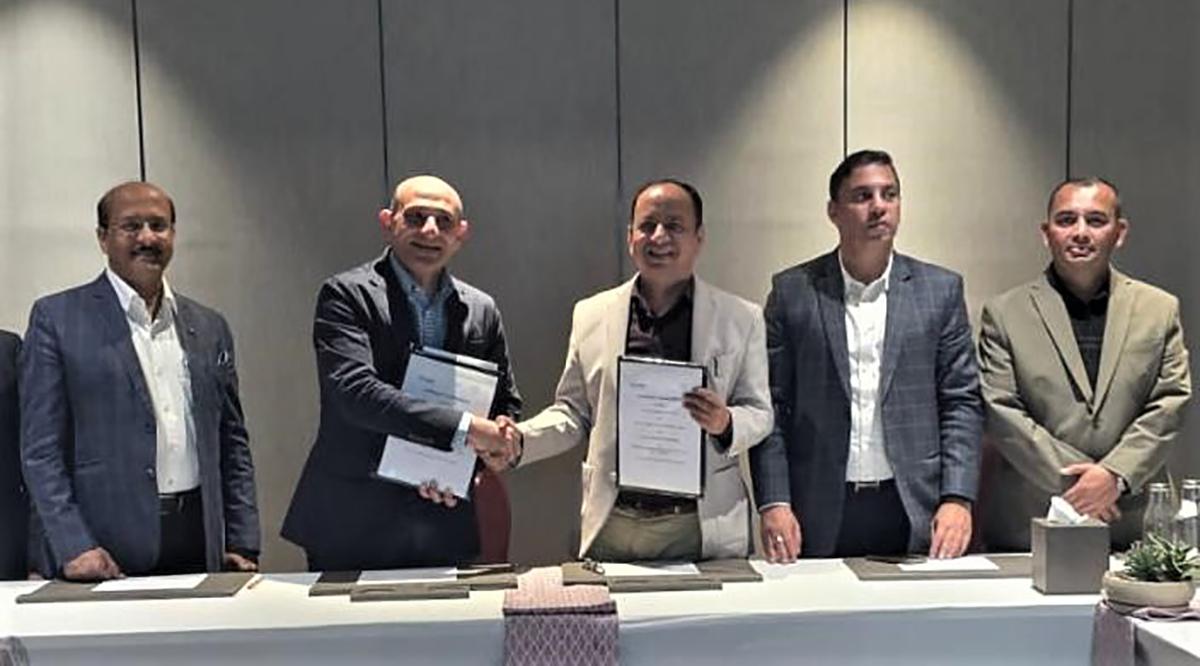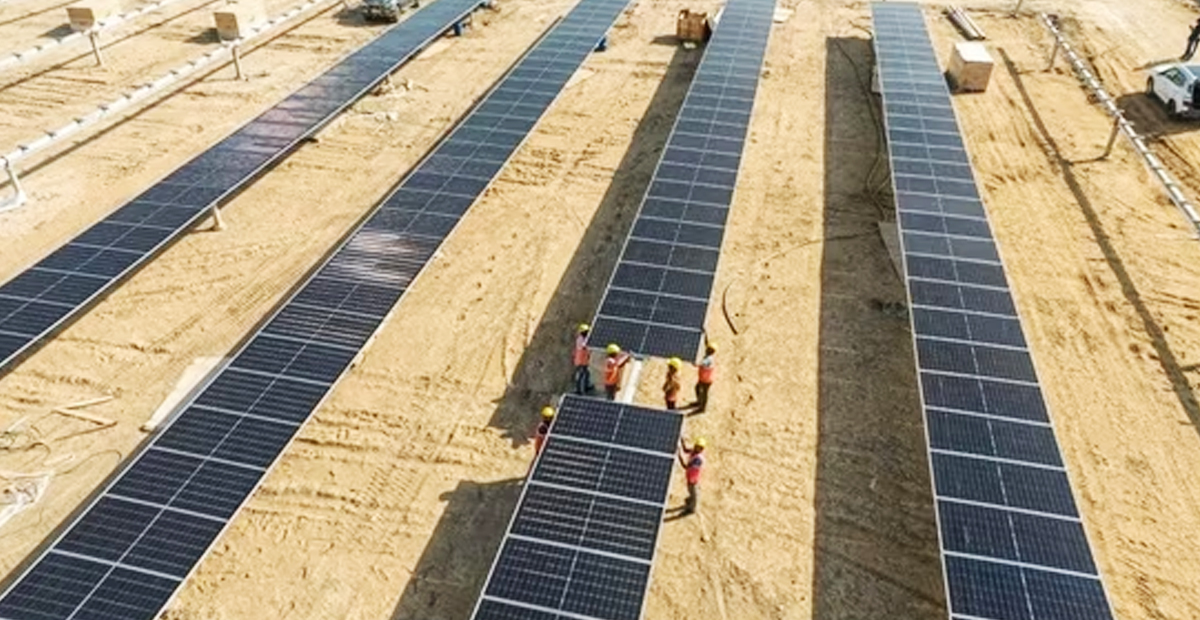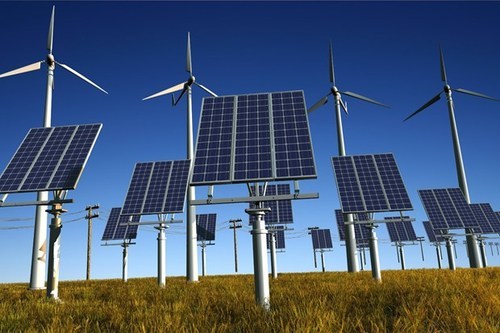Energy Update
'Sustainable Energy Challenge Fund' is a Key for Renewable Energy Development and Electrification: Minister Khadka
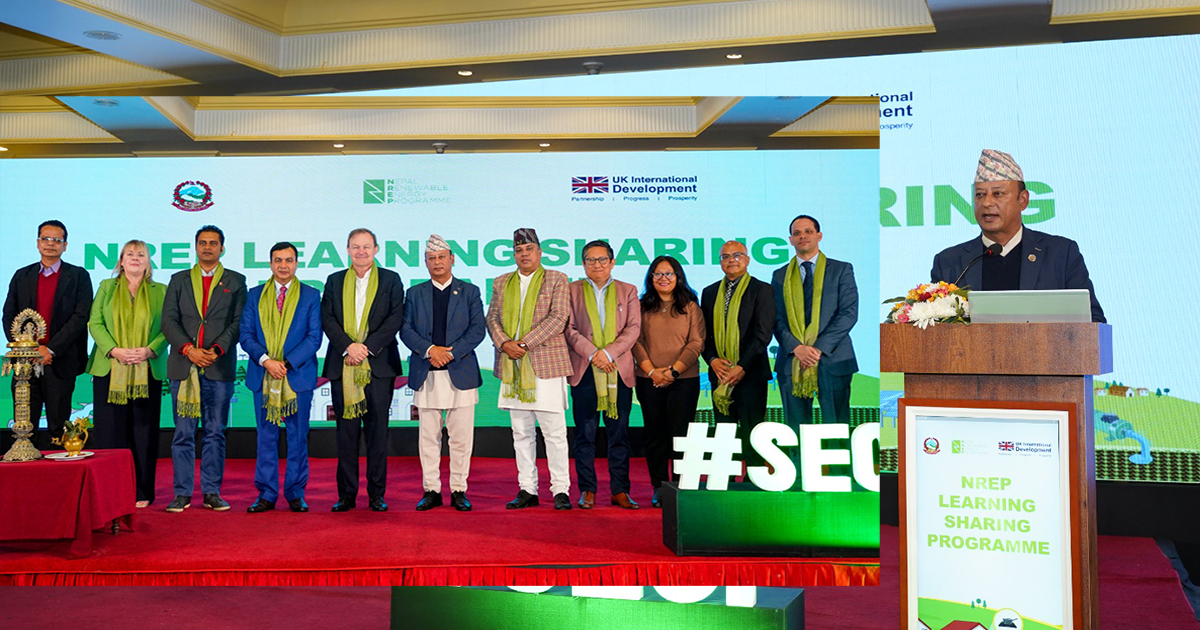
Kathmandu: Deepak Khadka, Minister for Energy, Water Resources, and Irrigation, has stated that the "Sustainable Energy Challenge Fund" will be an essential lubricant in achieving the government's energy development goals. He expressed this remark during the NREP Learning Sharing Program organized under the Nepal Renewable Energy Program (NREP), operated by the Alternative Energy Promotion Center (AEPC).
Minister Khadka emphasized that the government is working towards attracting private investment in renewable energy projects and ensuring access to energy for all. “The Sustainable Energy Challenge Fund can play a crucial role in making the energy system high-quality and reliable,” he said. “NREP has also provided significant support, including financial and technical assistance, for the financial viability and sustainable operation of projects.”

He further highlighted that the recently approved Energy Development Roadmap and Action Plan aligns with Nepal’s movement towards clean energy and climate change in line with international commitments. He reiterated that renewable energy, energy efficiency, and clean energy transition have been given top priority in national goals.
The minister pointed out the target of achieving same percent electricity access for all households within the next two years by deploying off-grid solar, wind, and small hydropower in areas not connected to the national grid. He also referred to Nepal’s long-term goal of achieving net-zero emissions by 2045, the Second Nationally Determined Contribution (NDC), the 16th Development Plan, and other national and international commitments.

Minister Khadka noted that achieving these goals requires a collective effort and substantial financial resources, where the Challenge Fund will play a vital role. He assured that continuous discussions and negotiations with development partners and donor agencies would be held to support this initiative.
Similarly, Energy Secretary Suresh Acharya stated that financial resources such as the Green Climate Fund and the Sustainable Energy Challenge Fund will be utilized to implement plans and programs.
During the event, British Ambassador to Nepal, Rob Fenn, highlighted that Nepal has tremendous opportunities to develop clean and renewable energy. For this purpose, the UK has assured strong support for its advancement.
“Nepal’s economic growth significantly depends on hydropower and clean energy, and NREP has played a crucial role in building the necessary infrastructure,” he said. “The UK government will continue its support for alternative energy programs.” He also recalled Britain’s assistance to Nepal Electricity Authority (NEA) in building transmission infrastructure.
Nawa Raj Dhakal, Executive Director of AEPC, focused that collaboration with the private sector has yielded expected results. “Financial constraints have been a challenge for advancing renewable energy projects, so we aim to attract banking institutions through a Viability Gap Fund (VGF),” he stated. “This will not only help develop the private sector’s capacity but also enhance their confidence.”
Financial constraints have been a challenge for advancing renewable energy projects, so we aim to attract banking institutions through a Viability Gap Fund (VGF). This will not only help develop the private sector’s capacity but also enhance their confidence.
Similarly, Dr. Narayan Prasad Adhikari, Deputy Executive Director of AEPC, noted that NREP has made significant progress by electrifying remote Karnali regions and integrating agricultural irrigation and small hydropower projects into the central grid. “This initiative has supported the decentralized development model and the implementation of federalism,” he said. “Once the Renewable Energy and Energy Efficiency Bill is passed, more concrete progress will be made.”
NREP Team Leader Suman Basnet mentioned that the program has played a crucial role in improving the livelihoods of poor, marginalized, and disadvantaged communities. “NREP has significantly contributed to reducing annual carbon and greenhouse gas emissions,” he said. “Through solar irrigation, fish farming, and pellet usage, sustainable, green, and reliable energy access has been expanded.”
Likewise, Kushal Gurung, President of the Renewable Energy Confederation Nepal (RECON), acknowledged that NREP has already contributed to reducing carbon emissions. “This initiative should be expanded to other potential areas, and household electric cooking must be widely promoted,” he said. “A sustainable energy campaign should be launched for all through the Challenge Fund.”
AEPC has been implementing NREP with support from the UK government. The provision for the Energy Challenge Fund has been included in the Central Renewable Energy Fund Operational Directive, 2021 (First Amendment).
Conversation
- Info. Dept. Reg. No. : 254/073/74
- Telephone : +977-1-5321303
- Email : [email protected]






